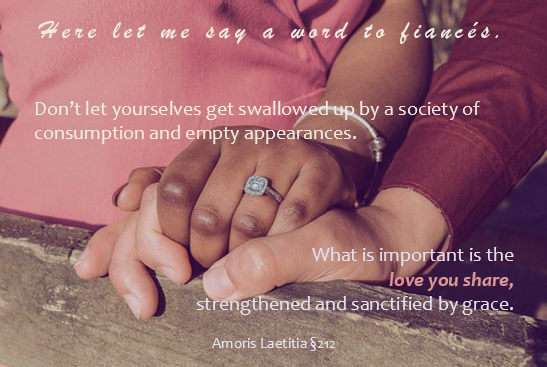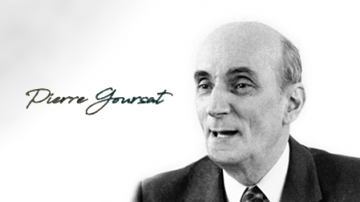The doctrine has not changed, the world has changed!
Interview with Fr. Frédéric Louzeau “Il est Vivant” (He is Alive!) and Louis-Etienne de Labarthe
 Fr. Frédéric Louzeau : director of the Research Centre at the Collège des Bernardins. Professor of Theology at the Faculty of Notre Dame (Paris)
Fr. Frédéric Louzeau : director of the Research Centre at the Collège des Bernardins. Professor of Theology at the Faculty of Notre Dame (Paris)
An itinerary of human and spiritual growth for people of flesh and blood’
Ilestvivant! What was the Pope’s intention in summoning the two sessions of the Synod on the Family, reflected today in this text?
Frédéric Louzeau He wanted the Church to progress in her ability to proclaim the Gospel of the family at a time when many men and women around the world doubt that the experience of marriage and of the family is good news and a place of fulfilment. He wished to remind all Christians not only that they could welcome the presence of Christ our Saviour in their family life but also could announce it, thereby encouraging humanity to build its families into a place of happiness and blessing. The objective of Pope Francis is part of the pastoral and missionary conversion to which he invites the whole Church.
IEV That is to say?
FL That the Church must progress in her ability to accompany people and communicate the Gospel as genuine good news, offered to us and desirable and not as something very abstract and inaccessible.
IEV What is this good news for the family?
FL It is that Christ is present in our experience of marriage and the family, that He acts, assumes, saves, and blesses all the relationships that constitute it. I expected, moreover, that this apostolic exhortation, the fruit of a synod, would be entitled ‘The Gospel of the Family’ – Pope Francis often uses this expression. But he preferred Amoris Laetitia, ‘The Joy of Love’. This is significant. The Pope wants us to be filled with joy by discerning the love of God at work in the family. On the one hand, he invites families to taste and savour the joy of love in fully living out their vocation. On the other hand, he wants us to be able to look at all families and each person with this regard of joy. Then we will be able to tackle more complex questions of accompanying, discerning and preparation for marriage, etc. It is this ‘opening of the eyes’, linked to the recognition of the practical action of Christ within families, that will enable us to approach the Apostolic Exhortation in an appropriate way.
IEV This ‘joy of love’, few seem to live it today …
FL I would say the opposite. I think a lot of men and women on our planet experience this joy in family life, even if they have no words to express it, even if they are not fully conscious of the One who gives them this joy, even if they are facing trials. Today the family is the great refuge for a majority, even in difficult situations. There is a lot of love in most families. Christians must open their eyes to see this love in Jesus’ regard for us and rejoice. ‘Am I not allowed to do what I choose with what belongs to me?’, said the master in the parable of the workers of the eleventh hour, or ‘are you envious because I am generous?’ (Mt 20:15).
IEV So the title gives us the right key in approaching this text?
FL Yes, for it is precisely entering into the joy of love and, in doing so, to humbly ask for grace. The second major key to reading it is the preferential option for the poor as applied to family pastoral care.
IEV Some people have the impression that Pope Francis has broken with his predecessors. What do you think?
FL This is an error of perspective. Pope Francis wrote this text in a way analogous to that used in his encyclical Laudato Si (2015) on the ‘care of the common home’ Previous Popes had already provided many ways of reflecting on ecology. Pope Francis ordered these elements towards an itinerary of spiritual conversion. For Amoris Laetitia, he proceeded in the same way. He organized the doctrinal elements contributed by his predecessors, especially Pope John Paul II, in a journey of conversion and of change of life. In a way, one could say that he ‘digests’ the elements of the doctrine to make them more edible. For 40 years, Christian doctrine on marriage has developed in an exceptionable way, especially with Pope John Paul II’s theology of the body. But how could one make it practical so that people might recognize what was their good? All this must be translated into a human and spiritual itinerary, strong and joyful. The Church cannot be content with just presenting an ideal model – she must accompany and stimulate the growth of people. This is what the Pope proposes in this exhortation and in a methodical way. The method is linked to the charism of Saint Ignatius of Loyola. It is indeed the characteristic of the latter’s Spiritual Exercises that the truths of faith are made practical in existential choices. The retreatant embraces the great truths of the faith and embodies them in a choice of life.
IEV Is there not however a change of discipline in the Church?
FL No. There is no change either in doctrine or discipline (that is, in the general laws governing matrimonial life). Amoris Laetitia is simply a new incentive to a responsible, personal and pastoral discernment in particular situations. The Pope refers in fact to a very old and very traditional pastoral practice – that of discernment on a case by case basis and according to the internal forum by priests. The Church knows well what sin is. But it also knows that there are conditions and circumstances which diminish responsibility for acts. The Pope says: ‘Hence it can no longer simply be said that all those in any “irregular” situation are living in a state of mortal sin and are deprived of sanctifying grace.’ (§301). Discernment must be used to help to find a way to growth. The previous Popes, John Paul II and Benedict XVI, had already spoken of the need to discern each case. Pope Francis sheds new light on how to take into account current conditions in our society and encourages priests to discern particular situations.
IEV What is this new understanding offered by Pope Francis?
FL He has a very keen awareness of the changes in society during the last few decades in the domain of marriage and the family. In Chapter 2, based on an analysis of the Synodal Fathers, he noted the great fragility of human environments, the weakened social structures, exaggerated individualism, the culture of the provisional, precarious living conditions and a collapse of faith and religious practice, etc.
Since the beginning of my pastoral ministry, 18 years ago, I have been profoundly convinced that marriage preparation requires special care. In a few decades, the culture has profoundly changed and the classical supports have collapsed – this all makes young people very vulnerable. Even two fiancés coming from very committed families can be disorientated by this reality. If you do not prepare them seriously, it’s like asking them to climb Everest in trainers and tee-shirts. And so doctrine has not changed, it is the world that has changed! When Christ speaks of the indissolubility of marriage (Mt 19), he concludes by saying: ‘Not everyone can accept this teaching, but only those to whom it is given.’ In societies where culture seemed more conducive to marriage, this might have seemed self-evident. One now realizes that the conjugal alliance depends on certain anthropological conditions being fulfilled, and that today, in many cases, they are only imperfectly fulfilled. There is therefore a path of human and spiritual growth to be laid out so that people can understand the truth of the conjugal covenant from within, and live it joyfully.
IEV Why does the Pope use the expression “situations said to be irregular “.
FL He does not like to talk about ‘irregular’ situations. He prefers to talk of situations which are fragile or imperfect, and in which the evangelical ideal has not yet been achieved in its fullness. The expression ‘irregular situations’ stigmatizes people and risks making them despair, whereas they are the object of God’s mercy and therefore always capable of accomplishing good, whatever their situation. The expression also runs the risk of enclosing families in a ‘regular’ situation in a form of pharisaicalism or spiritual inertia, whereas they are always called to conversion and to progress. The Pope wants to go beyond these categories because all families need to be on a path of growth. All men are sinners and they all need Divine Mercy. The call to conversion is as urgent and imperious for one as for the other. You should not think that this is relativism – it is the very thrust of the Gospel. It is not a matter of equating all of life’s situations. The Pope knows well that adultery is a serious sin and that it is destructive. But beyond what is regular and irregular, we are all beggars who need God’s Grace to arrive at his Kingdom. A key phrase is this one: ‘It is a matter of reaching out to everyone … no one can be condemned for ever, because that is not the logic of the Gospel’ (§297)! The logic of the Gospel is that no life is completely spoilt. Even in situations where evil has the greatest hold, Christ can overcome them and open again the way to the Kingdom of God.
IEV Yet, some see here a form of relativism …
FL And others criticize the imprecise formulae. But this is because they think that the Pope is first of all speaking on a theoretical plane. I do not mean that there is no doctrine in the exhortation, but his intention is to transform the common doctrine into an itinerary of human and spiritual growth for people of flesh and blood. Some readers expect from the text what it does not claim to give and, at the same time, miss out on what it gives. What I have called an error of perspective is, ultimately, a difference in points of view or of the methods of reflection. On one hand there is a method which, based on pure reason and invoking objective logic, combats and denounces errors that tend to undermine the truths of salvation. On the other hand, there is a method which, assuming one has acquired the first, attaches itself to real people and analyses the conditions where change is possible and the state of their freedom. A disciple of Saint Ignatius, Pope Francis uses this second method of reflection, practical and historical, which is not to be opposed to the first but which surpasses it while including it. People are richer and more complex than our concepts.
IEV What about the question of access to Holy Communion to the divorced and ‘remarried’?
FL The Pope speaks first of all and above all about Holy Communion in chapter 5 by
quoting the first letter of Paul to the Corinthians (§185-186). He recalls that a Christian may be “in order” morally speaking and yet, because he does not discern the body of the Lord, especially in the poor, is taking Communion unworthily (§186). In chapter 8 he specifies that someone who is in an objective situation of sin, that is, not in conformity with God’s plan, can live by grace and even, in some cases, receive the help of the Sacraments, if their situation is not fully culpable. This is the case, in particular, when the person considers in conscience that they would commit another fault by penalizing the children of the new union (§298).
In the internal forum, I ask myself, “Does the person have an attitude of humility? Is their degree of responsibility mitigated by certain factors? Do they believe in the Sacrament of Marriage? Etc.”
IEV So what do we do practically?
FL The Pope did not provide an inventory of cases and conditions where,
although in an objective situation of sin, it is possible to have access to the Sacraments – he expressly did not wish to do so. He did not want to suggest that these possibilities amounted to a right to receive Holy Communion under any circumstance. He wanted to encourage discernment on a case by case basis, both in the internal and external forum, in the light of the Word of God. And most importantly, whether the situation is ‘regular’ or ‘irregular’, he reminded us that each person can always, by the grace of God, make an act of love, which covers a multitude of sins. We must relearn this practice of discernment, which highlights, in a particular situation, the good things that God gives to each one of us to do. This is a very old practice. It has been acted on for centuries by confessors, but it is true that it needs to be revived today. The Pope has just reaffirmed the urgency of training in discernment, in a discernment which is both personal and community based, in seminaries and presbyteries.
IEV What do you do personally?
FL I can simply tell you the state of my reflections. In the internal forum, I ask myself, “Has the person an attitude of humility? Is their degree of responsibility mitigated by certain factors? Do they believe in the Sacrament of Marriage? Do they have a sincere desire to advance in their conversion by a search for the best possible routes? In the external forum, I am attentive to the question of discretion to avoid creating a scandal or of demoralizing Christians in their fidelity to the Sacrament of Marriage.
FL Pope Francis has a vision of man drawn from Scripture. He sees him as a being on the way, a growing being. As long as I am on this earth, I have not yet fully accomplished what I ought to be. This is the vision of the Bible. It is therefore for us Christians to be attentive, day by day, to the good that the Holy Spirit allows us to realize in the midst of human frailties and to be able to evaluate all the elements which can lead to a growth of people in truth and love – these ‘small steps’ that God illuminates and which direct our life towards the fullness of His Kingdom. We will never have finished growing up in love.











